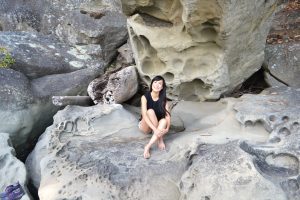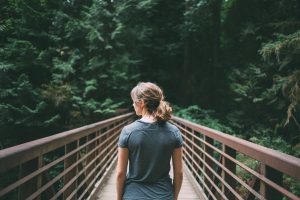A therapeutic look at the great outdoors has shown the many healing benefits of nature that we have yet to fully understand – but mainstream medicine is starting to come on board as forest therapy becomes more well known across the world.
The idea of forest therapy started in 1982 in Japan, where they call it”Shinrin Yoku,” which means forest bathing. There are many health benefits found in forest therapy, such as reducing blood sugar, stabilization in mood, and a boost in immunity.
But it’s the unexplainable that captures the attention of most.
“A colleague took a woman who was undergoing cancer treatment on a walk.he next day, [the woman] was getting blood tests done and her white blood cell count was better than it has been in a while,” says Andrea Prazmowski, a certified forest therapy guide, trained with the Association of Nature & Forest Therapy Guides & Programs. She works for Forest Therapy Ottawa and is the city’s first forest therapy guide.
Prazmowski says that all of the experiences that occur during a session can have a “transformative effect” in helping you let go of issues and situations you are struggling with. This is because of the benefits of being in nature and the guides taking their time to help you understand your emotions. The practice allows your body to connect with nature’s elements that bring our bodies into a rest or meditative state, which creates a deep connection and a physiological rest state.
A forest therapy session begins with a guide taking an individual or group out into nature. Then the guide gives cues to start slowing your brain down. Our brains are often in a sympathetic fight or flight nervous system because of how we live our daily lives.
Dr. Ramola Porchuck, one of the Global Institute of Forest Therapy co-founders says some trees give off a chemical called phytoncides. That chemical is found explicitly in conifers and oaks. Phytoncides are antimicrobial antibiotics for trees themselves, but when humans take in that scent, our nervous systems have a response that boosts our immune system.
“Our brains actually respond to fractals, which are patterns that are in leaves or in the environment,” Porchuck says. “We have co-evolved with these things as biological humans. Bird sounds and other nature sounds relax us because of the combination of these things.”
These findings have shown numerous health benefits that aid in treating anxiety and depression.
In 2008, Dr. Li conducted a study on 13 female nurses on a three-day trip. During this trip, anti-cancer proteins were created that lasted more than seven days once the trip was ended. The scientific community is still researching this phenomenon intensively.
Even though sessions are usually done in groups, A session can be done alone on a walk, with a professional guiding you live, or with a pre-recorded session.
“It’s really an idea about going into the forest and experiencing it through our senses in a very mindful and slow way. It’s essentially about opening up and bridging that gap between ourselves and nature through our five senses,” says Carol Burnup, a certified guide and the communications and marketing manager with Tree Canada.
Burnup assures that you can get started anywhere — it doesn’t have to be in a forest.
“You can go to your backyard. You can go to your local park. You can go to more of a wilderness session, or you can sit next to a plant in your apartment or your house.”




